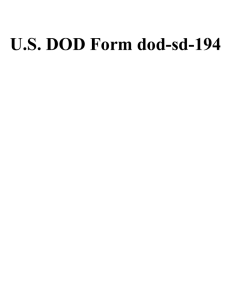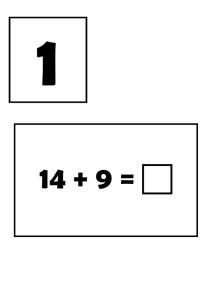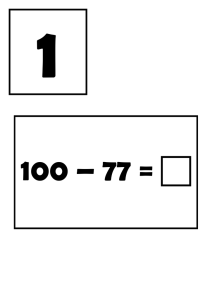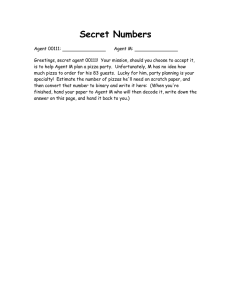The Syllabic Construction of the Language Game/ Secret Language
advertisement
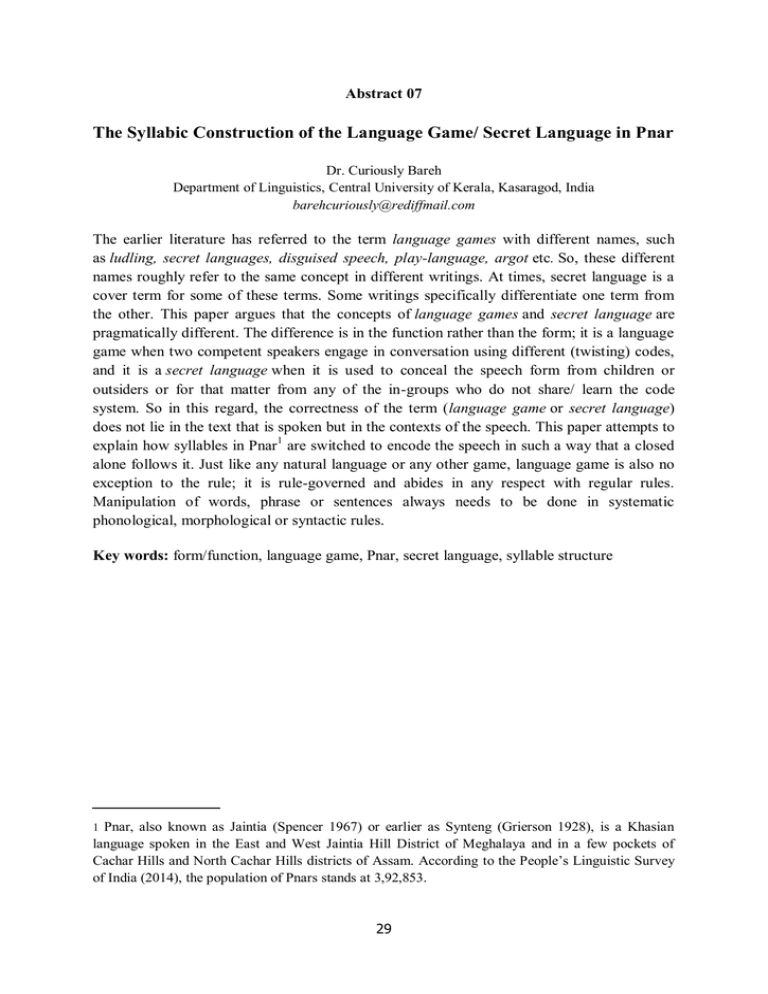
Abstract 07 The Syllabic Construction of the Language Game/ Secret Language in Pnar Dr. Curiously Bareh Department of Linguistics, Central University of Kerala, Kasaragod, India barehcuriously@rediffmail.com The earlier literature has referred to the term language games with different names, such as ludling, secret languages, disguised speech, play-language, argot etc. So, these different names roughly refer to the same concept in different writings. At times, secret language is a cover term for some of these terms. Some writings specifically differentiate one term from the other. This paper argues that the concepts of language games and secret language are pragmatically different. The difference is in the function rather than the form; it is a language game when two competent speakers engage in conversation using different (twisting) codes, and it is a secret language when it is used to conceal the speech form from children or outsiders or for that matter from any of the in-groups who do not share/ learn the code system. So in this regard, the correctness of the term (language game or secret language) does not lie in the text that is spoken but in the contexts of the speech. This paper attempts to explain how syllables in Pnar1 are switched to encode the speech in such a way that a closed alone follows it. Just like any natural language or any other game, language game is also no exception to the rule; it is rule-governed and abides in any respect with regular rules. Manipulation of words, phrase or sentences always needs to be done in systematic phonological, morphological or syntactic rules. Key words: form/function, language game, Pnar, secret language, syllable structure Pnar, also known as Jaintia (Spencer 1967) or earlier as Synteng (Grierson 1928), is a Khasian language spoken in the East and West Jaintia Hill District of Meghalaya and in a few pockets of Cachar Hills and North Cachar Hills districts of Assam. According to the People‟s Linguistic Survey of India (2014), the population of Pnars stands at 3,92,853. 1 29
